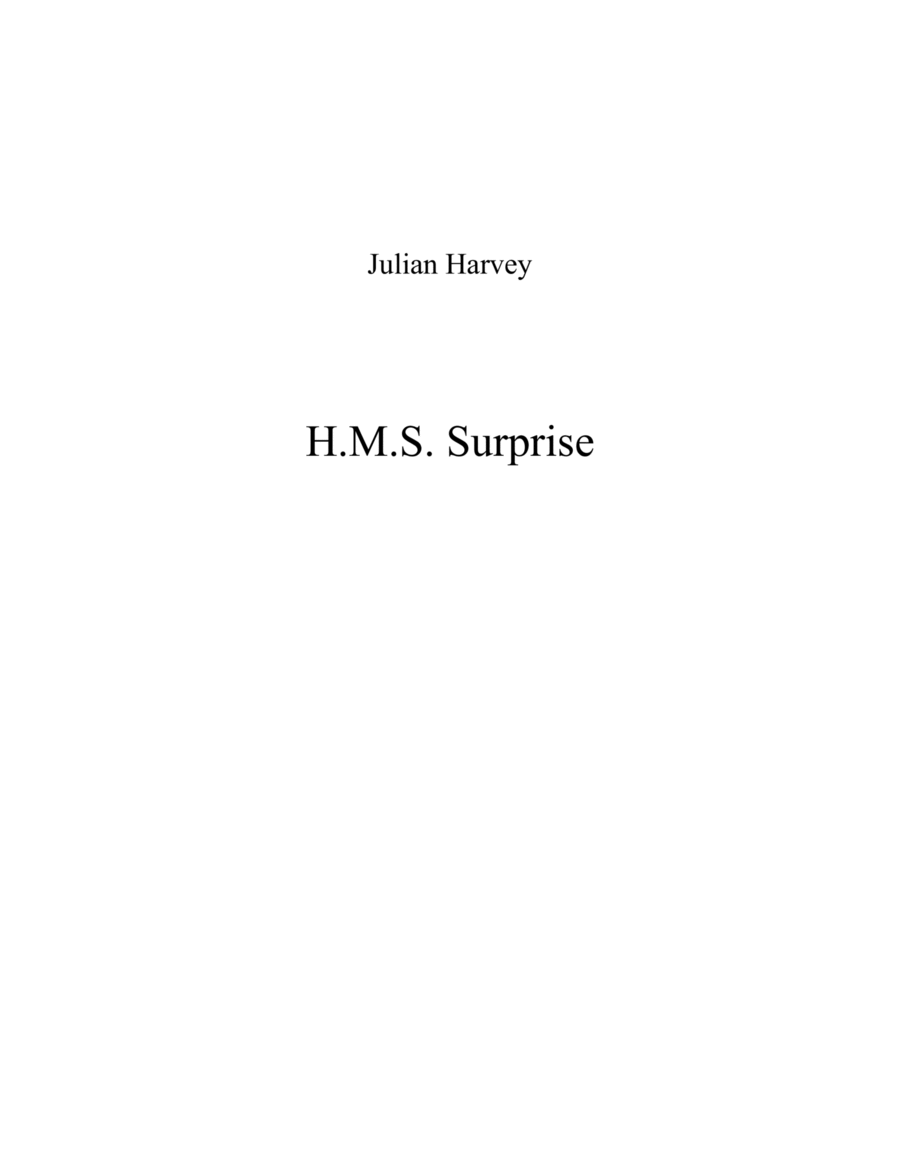Chamber Orchestra - Level 5 - Digital Download SKU: A0.1410415 Composed by Julian Harvey. 21st Century,Classical,Contemporary,Film/TV. 128 pages. Julian Harvey #992821. Published by Julian Harvey (A0.1410415). Having read many of the novels of Patrick O'Brian about the British Navy during the Napoleonic Wars, I thought I would write music for a hypothetical film based on these novels. I started H.M.S. Surprise long before I learned that such a film, Master and Commander: The Far Side of the World was actually being made. I had neither seen the movie nor heard the music used in it.H.M.S. Surprise consists of two movements for chamber orchestra. The first, In the Harbour, serves as an introducton. It portrays an existence which is peaceful and devoid of the difficulties to be encountered later. To be sure, there is some back-street intrigue and romantic entanglement, but life is generally pleasant. The second movement, At Sea, immediately follows the first and is considerably longer and more programmatic. It begins with typical adventure at sea music and soon becomes an imitation of a sailor's hornpipe, begun by the flute. Next comes the storm or the battle or perhaps both at the same time. Calm returns and the sailors give thanks by singing a hymn. Thanksgiving turns to celebration as everyone on deck plays one tune or another, including even the Captain, Jack Aubrey, who plays the violin. Later Captain Aubrey and his friend, Steven Maturin, physician, spy and cellist, play a duet before the music comes to a rousing conclusion.
